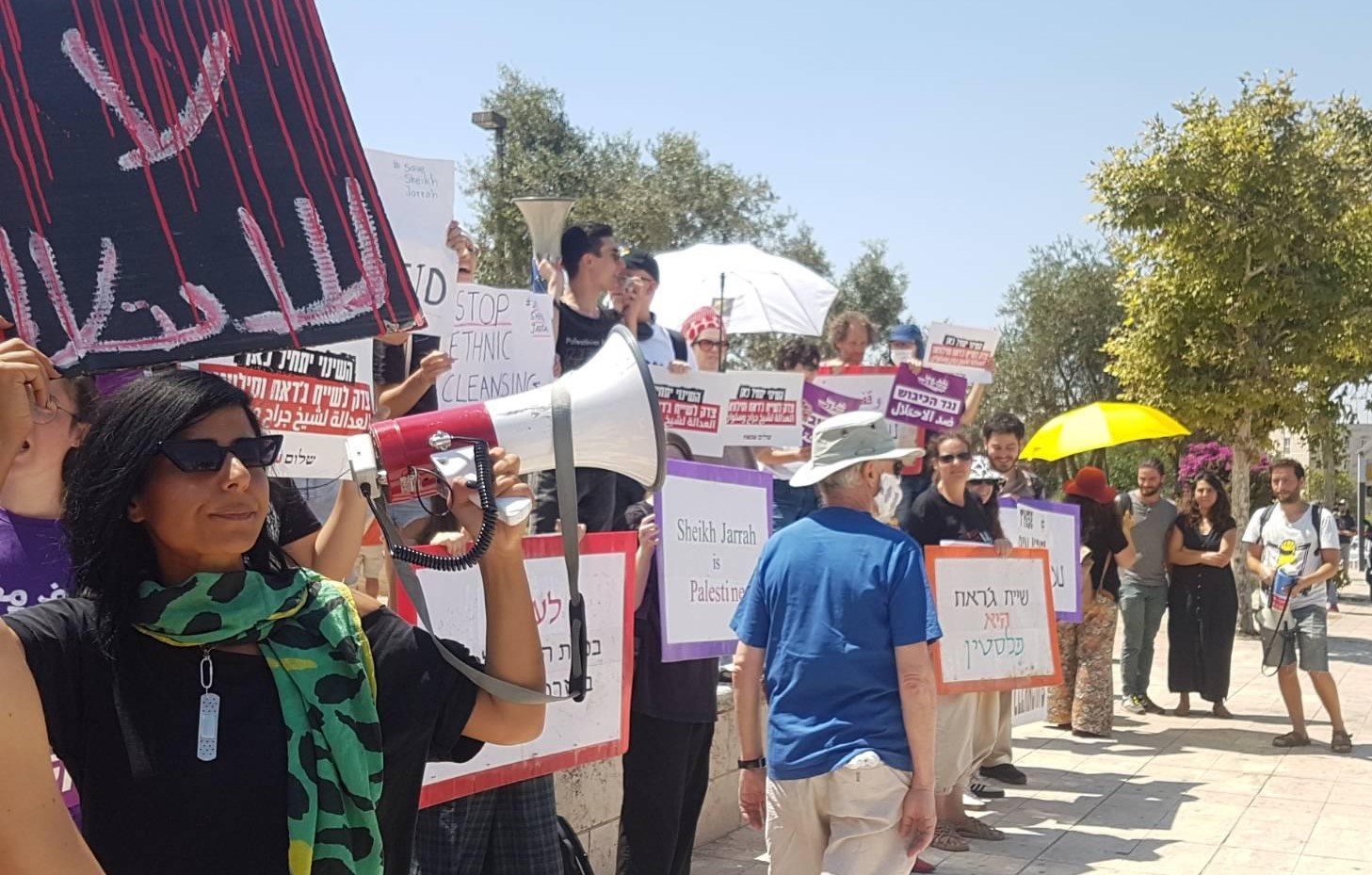Israel’s High Court of Justice proposed on Monday, August 2, a compromise deal that would allow the Palestinian residents of occupied East Jerusalem’s Sheikh Jarrah neighborhood to remain in their homes under a “protected tenants” status, thereby at least temporarily resolving a years-long standoff between the residents and a settler organization. A number of diplomats were in court to observe the proceedings, as were two Hadash lawmakers, Joint List Chair MK Ayman Odeh and MK Ofer Cassif, who have been very vocal in support of the Palestinian residents.

Dozens of peace activists and families awaited the High Court of Justice’s decision on Monday, August 2, in the hallway outside the Supreme Court chamber after they were not allowed to enter the packed courtroom for lack of space. Others, seen here, held a protest outside the building, holding signs that said “Sheikh Jarrah is Palestine.” (Photo: Free Jerusalem)
However, the three-hour hearing in Jerusalem ended without any final conclusion. The three-judge panel asked the families to consider an offer by which one member of each family would be granted lifetime protected tenancy on the property in exchange for annual payments of NIS 1,500. “This is the practical solution,” said Judge Yitzhak Amit, who led most of the proceedings. “We recommend it precisely because… you do not want anyone to be thrown out of their home.” The court proposed to allow the Palestinians to remain in their homes under a “protected residents” status, which is valid for three generations for each such family. According to the proposed plan the current young members of each family would be considered the first generation, which means that the entire family residing there can do so, but only for another two generations.
Attorney Sami Ersheid, who represents the four Sheikh Jarrah families, said his clients feared that by accepting the status of “protected tenants” they would have given up their ownership claims to the property. Atty. Ersheid was not palliated by assurances from the judges that the designation of protected tenancy and the rental would not prejudice any further legal proceedings with respect to property rights.
“The parties did not reach any compromise or conclusions,” Ersheid said after the hearing. “The judges heard our arguments… and we are waiting for a decision that might come today or tomorrow or in the coming days,” he told dozens of reporters who crowded around him. A second hearing might be held, Ersheid said. Should the compromise move forward, he would have to inform the court which member of each family would receive the status of protected tenant.
Palestinian PM Stresses Vital Role of the International Community
On Monday, Palestinian Prime Minister Mohammed Shtayyeh urged during the weekly cabinet meeting held in Ramallah the international community and the United States, in particular, to work on ending the Israeli policies of persecution, racism, and ethnic cleansing committed against Palestinians in Jerusalem’s Sheikh Jarrah and Silwan neighborhoods with the aim of replacing them with settlers. He warned the Israeli authorities against its settlement attempts to take control of Palestinian properties in Jerusalem by implementing against Palestinian Jerusalemites, who are living on their land and maintaining their property, the so-called “Absentee Property Law” to justify stripping them of their lands, seizing their property and evicting them from their homes. Shtayyeh called on Israel, the occupying power, to stop its settlement activities in Jerusalem because it has no right to conduct them.
Related:


